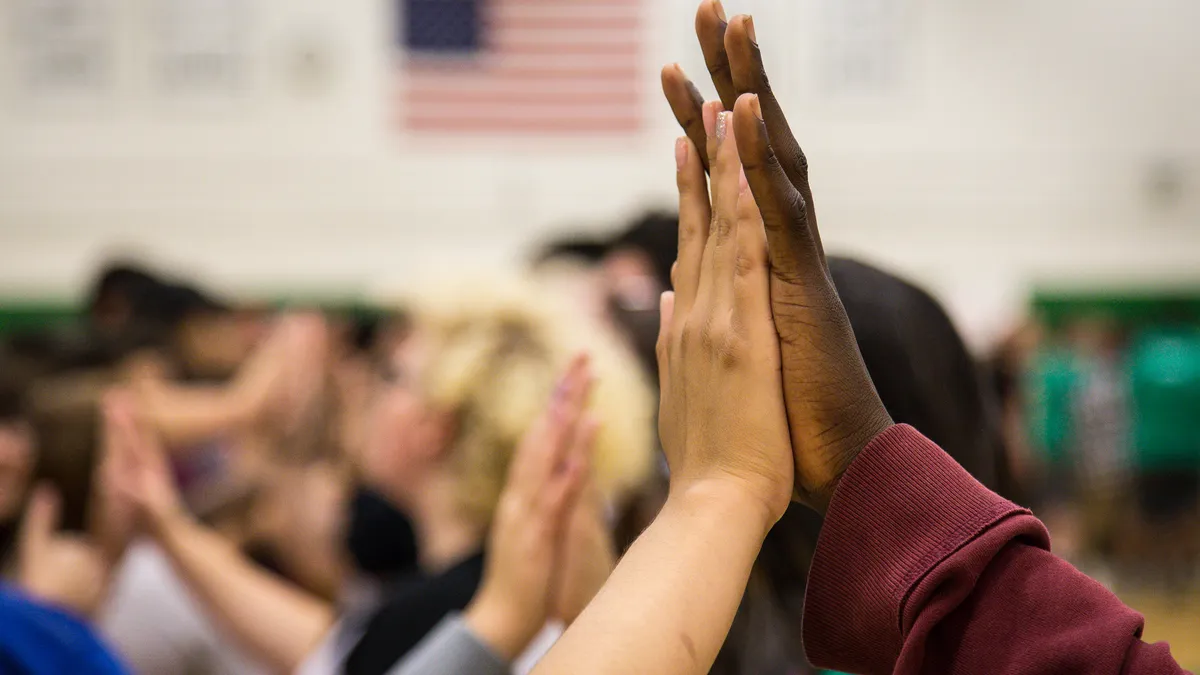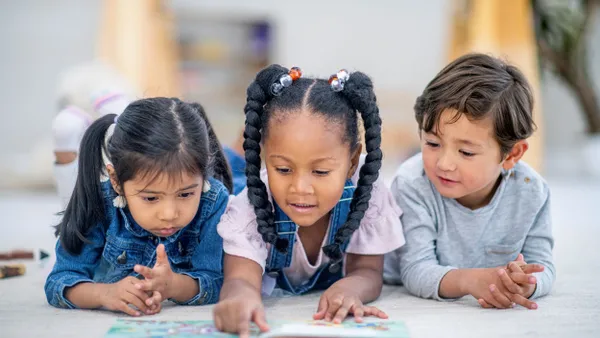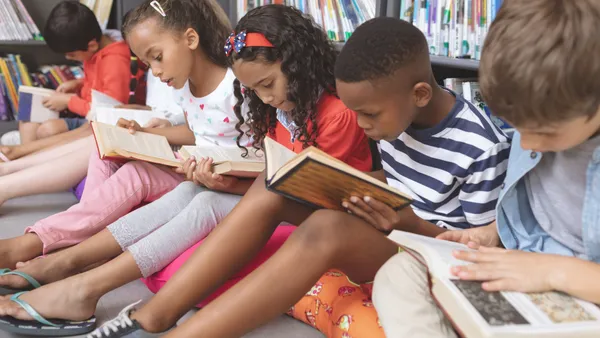Dive Brief:
- Social-emotional learning is taking a new turn, with educators seeking ways to make it culturally sensitive and equitable, Edutopia reports.
- While SEL stresses internal qualities needed for success, it should not be the sole focus, researchers say. External forces like racism, sexism and ableism should also be acknowledged for a complete picture and failure to do so could result in students blaming themselves when they encounter these obstacles.
- Students should have “critical consciousness,” or the ability to recognize and resist oppressive systems holding them and their communities back. Research suggests that youth who embrace critical consciousness have better self-esteem and more resilience, academic success, professional aspirations and are more politically engaged.
Dive Insight:
The Edutopia article, written by Boston University associate professor Scott Seider and Simmons University associate professor Daren Graves, recommends that students be given a framework to recognize social forces marginalizing groups. Once introduced, students can use that framework in all their classes and put historical and current events into context.
The trend is taking shape in other forms as well. Earlier this year, the New York City Department of Education adopted a culturally sensitive curriculum after NYC Coalition for Educational Justice found a lack of diversity, inclusiveness and minority representation in the learning materials. For example, 67% of the district’s students are black or Latino but 84% of the authors of the books that elementary students read are white.
Some states now require schools adopt LGBT-inclusive history curriculum by 8th grade. Research by University of Pittsburgh found that bullying declines in states with more LGBTQ-inclusive sex education. Experts recommend including information about LGBTQ history by integrating important figures and moments throughout the curriculum rather than making it a stand-alone topic.
A report by New America asserts that while all 50 states have teaching standards to show respect for the cultural diversity of students, only a few states specify what that really means. Alabama, Washington and Minnesota recommend that teachers understand institutional biases.






 Dive Awards
Dive Awards







